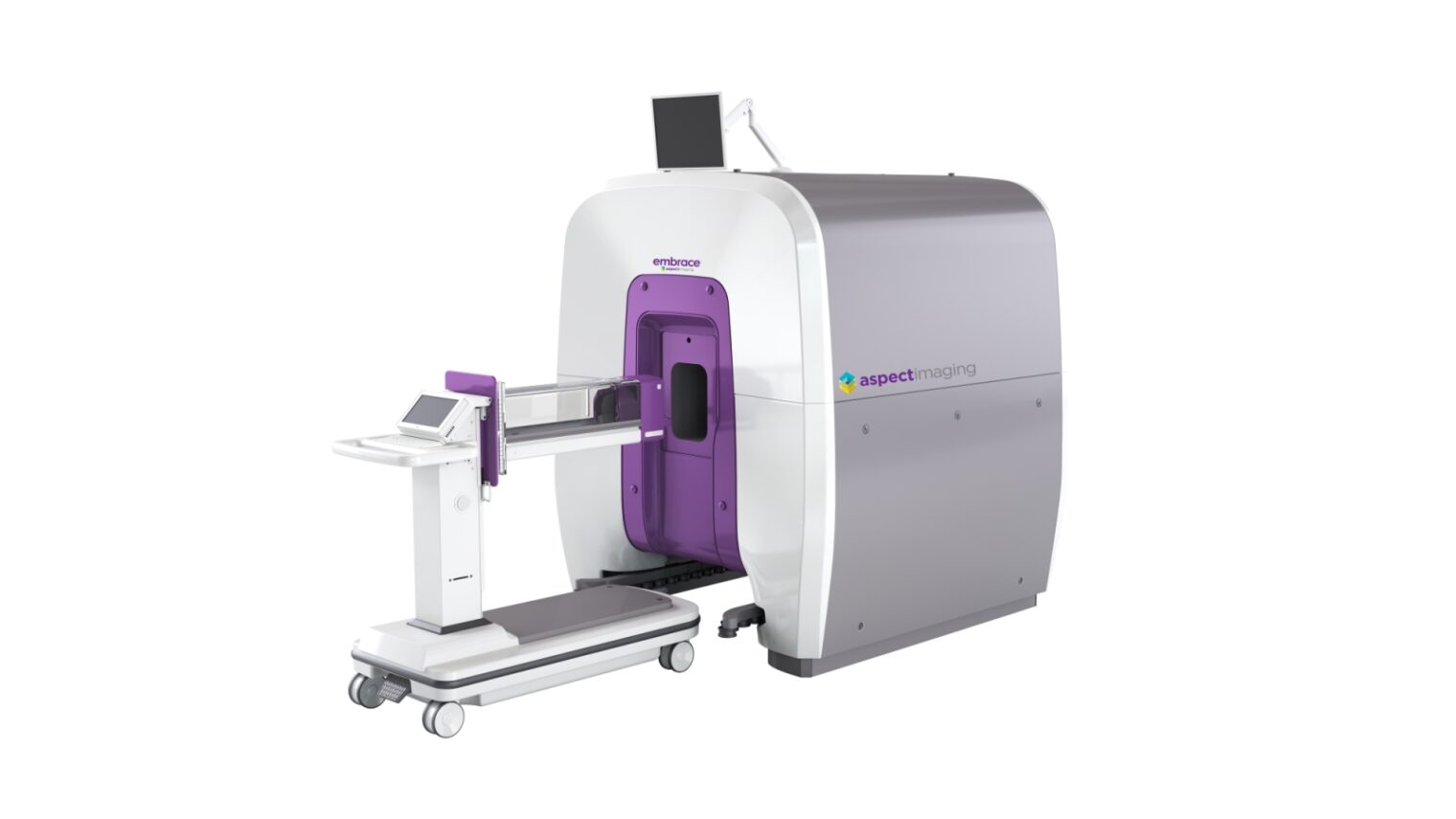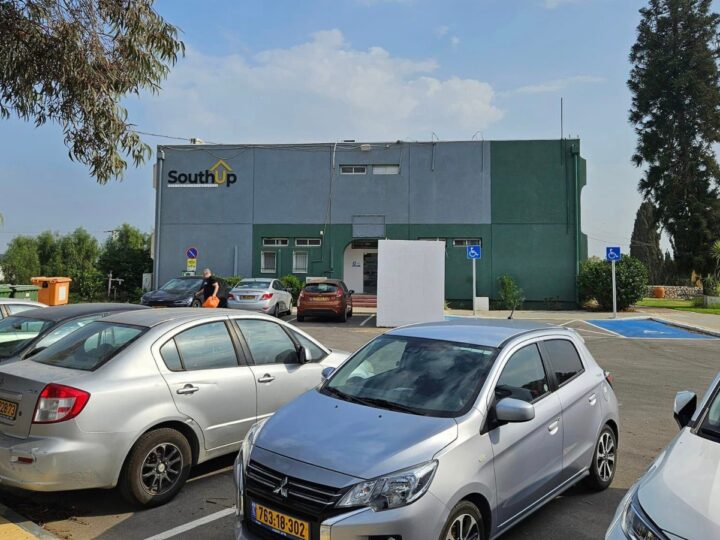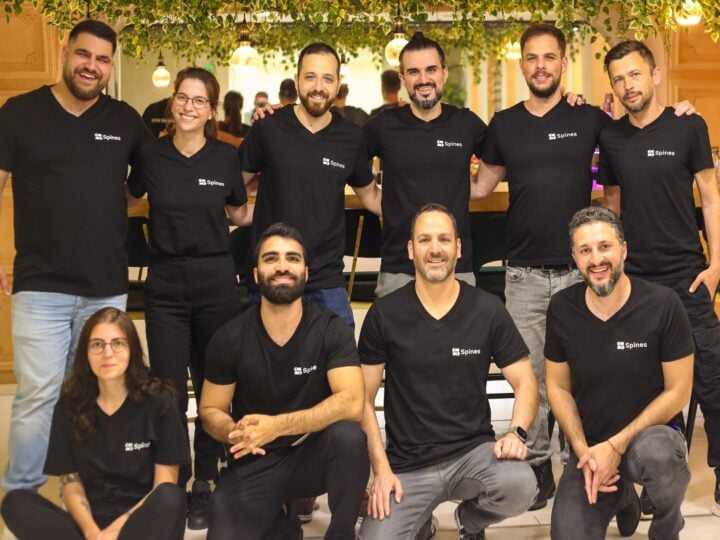In early November 2017, an Israeli TV news crew was on hand at Jerusalem’s Shaare Zedek Medical Center’s neonatal intensive care unit as the parents of a premature baby stood next to the Embrace Neonatal MRI system in which the baby’s brain was being imaged.
At their side were nurses, doctors and Uri Rapoport, the inventor of Embrace, the world’s first MRI machine especially for the NICU.
“It was the first time ever that parents and staff could stand around an MRI machine with no restrictions. I will never forget the hug the mother gave me,” says Rapoport, the founder, president and CEO of Israel’s Aspect Imaging.
MRI scans of newborn preterm babies can identify any brain injury that might affect their development and tip off parents to the need for early intervention. However, it’s tricky to transport fragile preemies to the MRI room and to get an accurate scan.
Embrace was designed to solve these problems. Approved by the FDA for the United States in July 2017 and by the CE for Europe in October, the system produces diagnostic clinical-quality images of neonates without moving them from the NICU.
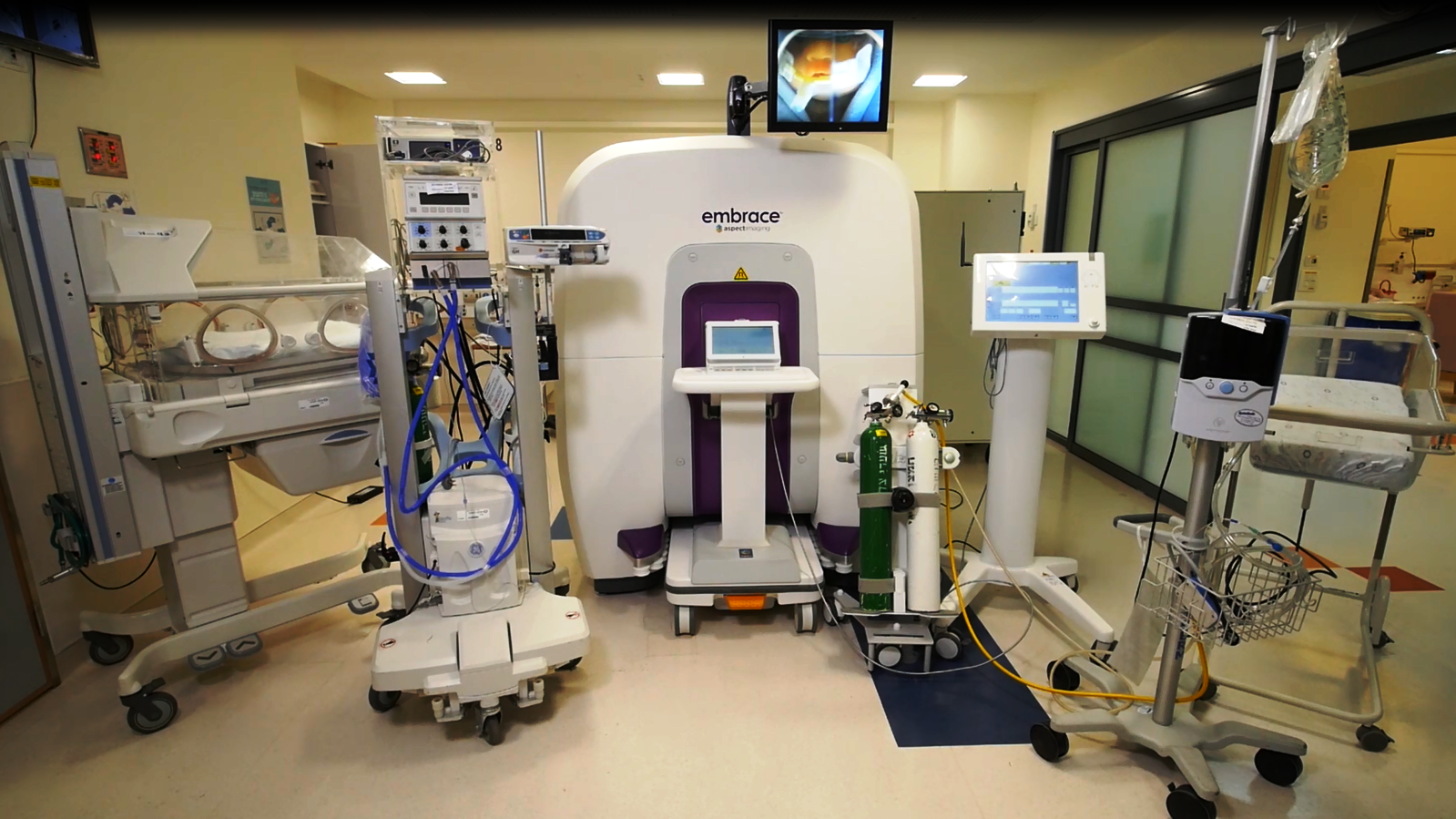
“MRI is the ultimate diagnostic tool to detect problems in the soft tissue of the human body but as it is used today it’s a complicated, noisy, dangerous and expensive device,” Rapoport tells ISRAEL21c.
“Our self-shielded permanent magnet MRI technology platform eliminates the complexity and the danger so the medical staff can use it as often and as easily as they use a blood-pressure gauge or thermometer.”
A clinical study at Shaare Zedek is comparing Embrace to the current “gold standard,” a Siemens MRI machine.
Dr. Francis Mimouni, the hospital’s chief neonatologist, tells ISRAEL21c that Embrace is “a revolutionary instrument that will undoubtedly help us in the future years understanding better the mechanism of brain injury in preterm infants, and to develop the best strategies to prevent such injuries.”
Silent and safe
Embrace operates without the scary banging sounds of regular MRI machines. It’s self-shielded from radiofrequency waves and emits an extremely low-level external magnetic field, so staff and parents can be present and there’s no danger from magnetic items in the room as there is with a standard MRI machine.
The medical staff can even use a cellphone right next to Embrace, says Rapoport.
The infant is swaddled to reduce movement and allow for tubes and monitoring leads to stay in place. The integrated incubator-like bed enables continuous temperature control and monitoring of vital parameters.
Aspect Imaging has signed distribution agreements in Europe and with Natus Medical in North America. Orders have come in from several US hospitals and from a brain center for premature babies in Europe.
“Now we are negotiating deals in China, where 160 million new babies are born every year. And it’s only the beginning,” says Rapoport, a permanent magnet technology expert who started the privately held company in his garage and now oversees 86 employees in Hevel Modi’in.
Where there’s a will, there’s a way
Developing the Embrace MRI system took about 10 years.
“It’s a difficult innovation, but in technology, if there is a need we will find a solution,” says Rapoport, 62.
“I invented some new magnet designs, raised a lot of money and hired a very good team to put my vision into reality. I felt if nobody else was doing it I should. I know the subject inside out and this was my dream.”
Aspect Imaging filed 250 patent applications for various MRI products including Embrace. Most have been granted and the rest are pending.
The company’s first MRI product was sold to 150 sites in the preclinical market, mainly research labs working with rats and mice. Next came FDA clearance for WristView, a compact point-of-care, wrist and hand MRI system.
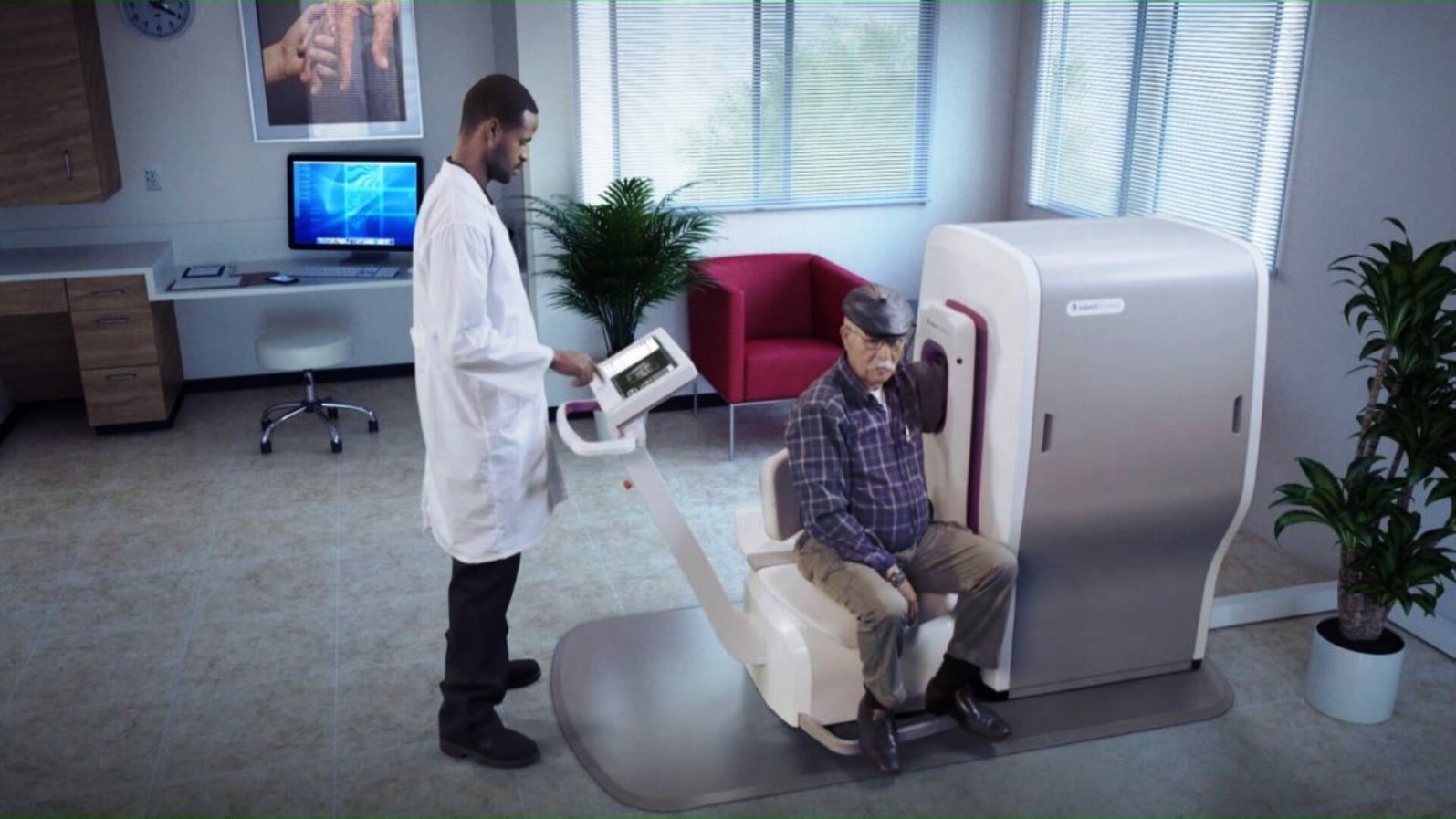
Finally, Aspect Imaging devised a bigger magnet for infant and head imaging with the backing of two major investors. Embrace is manufactured in Israel and costs $1.5 million in the United States; €1.2 in Europe.
With investments of more than $150 million so far, the company is now developing a bedside MRI system for emergency rooms to help evaluate effects of head stroke or head trauma.
“Next I want to make a bedside MRI for cardiac patients,” says Rapoport.
Aspect Imaging’s technology also has possible applications in the agricultural, food processing, biofuel and process control markets.
Aspect Imaging has sales and marketing offices in the UK, US and Canada. Its US partner is the Wonderful Company, a $4 billion conglomerate said to be the world’s largest grower of tree nuts and largest flower delivery service (Teleflora) and America’s largest citrus grower.
“The owner, Stewart Resnick, fell in love with us,” explains Rapoport with a smile.
For more information, click here.




